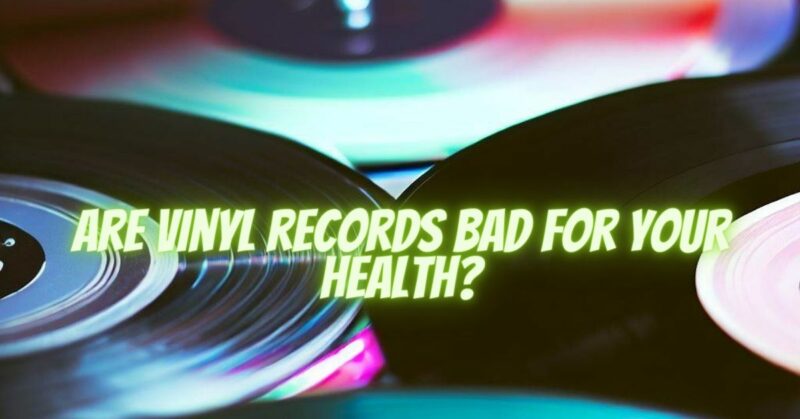Vinyl records have been cherished by music enthusiasts for decades, but concerns regarding their potential impact on health have occasionally surfaced. In this article, we delve into the subject and explore the health considerations associated with vinyl records. Understanding these factors will help you make informed decisions regarding your listening habits and minimize any potential risks.
- Chemical Composition:
Vinyl records are primarily made from polyvinyl chloride (PVC), a type of plastic. During the manufacturing process, certain additives and stabilizers may be used to enhance the record’s durability and playability. Some of these additives, such as lead and phthalates, have raised concerns regarding their potential health effects. However, it’s important to note that vinyl records manufactured after the late 1970s generally contain lower levels of these additives due to regulatory changes.
- Handling Precautions:
While the chemicals present in vinyl records may raise concerns, the risks to human health are generally minimal during normal handling. Direct contact with the record surface is limited to brief periods during playback, reducing the likelihood of significant exposure. However, it is advisable to handle records with clean hands to avoid transferring oils or contaminants onto the surface.
- Dust and Allergies:
Dust accumulation on vinyl records is a common issue, and exposure to dust can trigger allergic reactions in some individuals. Dust mites, mold spores, and other allergens may be present on the record surface, especially if records are improperly stored or not regularly cleaned. Individuals with respiratory conditions or allergies should take precautions such as using protective sleeves, regularly cleaning records, and maintaining a clean listening environment.
- Noise-Induced Hearing Loss:
Listening to vinyl records at excessively high volume levels for prolonged periods can potentially contribute to noise-induced hearing loss. It is important to practice responsible listening habits and avoid prolonged exposure to loud music, regardless of the format. Using quality headphones or speakers, maintaining moderate volume levels, and taking regular listening breaks can help protect your hearing.
- Mindful Listening Practices:
Engaging in mindful listening practices can help mitigate any potential health concerns associated with vinyl records. This includes ensuring proper ventilation in your listening space to minimize inhalation of dust particles, practicing good hygiene by washing hands before handling records, using anti-static brushes and cleaning solutions to reduce dust accumulation, and maintaining a clean and organized record storage area.
Conclusion:
While some health considerations are associated with vinyl records, the risks are generally minimal and can be managed through responsible handling, cleaning practices, and mindful listening habits. The chemicals present in vinyl records pose minimal risks during normal use, and proper precautions can reduce the likelihood of dust-related allergies. By adopting sensible precautions and responsible listening practices, you can continue to enjoy the unique and timeless experience that vinyl records offer without significant impact on your health.


